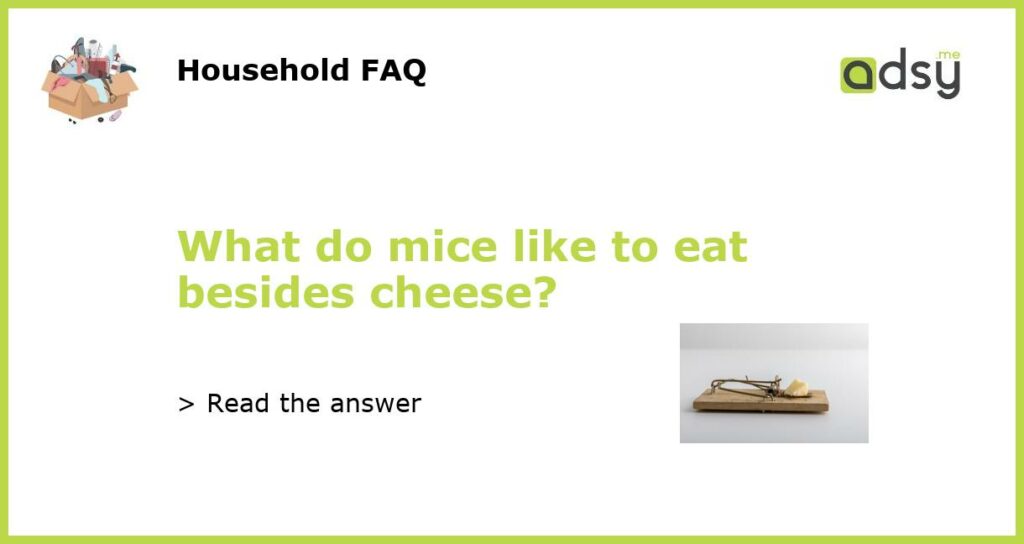Mice diet: what do they eat besides cheese?
When we picture mice, one of the first things that come to mind is a small rodent nibbling on a piece of cheese. However, contrary to popular belief, mice do not rely solely on cheese as their main source of food. Understanding a mouse’s dietary needs can help prevent infestations and keep them away from your home.
What is a mouse’s natural diet?
In the wild, mice primarily eat grains, seeds, and fruits, and they are excellent at foraging for food. This means that their diet can vary depending on their environment and what is available to them.
When it comes to pet mice, commercially available mouse food is the best option, as it provides the necessary vitamins and nutrients that these rodents need. These food mixes come in the form of pellets or blocks and contain a blend of grains, seeds, and vegetables.
Are mice attracted to other types of food?
Mice are scavengers and will eat almost anything, making them attracted to human food as well. In addition to cheese, they will consume nuts, peanut butter, and meats. If you have any food left out in the open, mice will be more than happy to help themselves.
Their attraction to food also extends to pet food bowls. To prevent mice from feeding on your pet’s food, it is best to put the food in a sealed container when not in use. Clean the bowls daily to remove any remaining food particles that can still draw mice to the area.
What foods should you avoid feeding to mice?
Feeding mice the wrong types of food can be harmful to their health. Sugary and fatty foods should be avoided, as they can lead to obesity and dental problems, respectively. Citrus fruits are also not recommended for mice, as they can upset their stomachs.
It is also important not to feed wild mice if they appear in your home. Giving them food can encourage them to stay and reproduce, worsening the infestation. Instead, focus on sealing up any food sources that may be drawing mice to your house and use humane traps to capture and release them into the wild.






